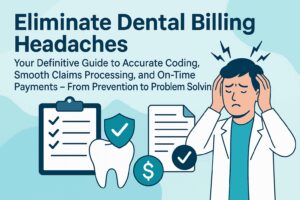
How virtual credit cards can cost your dental practice

Dental practices should avoid virtual credit card payments. Virtual Credit Cards (VCC/VCP) are another form of payment being offered to the Dental Practices by Insurance plans. Some Dental Plans have even gone as far as making it the preferred method of payment. Other Plans are using outside vendors to process payments for your practice. The payment process can be changed to VCC for practices that are not contracted with the Plans.
As health plans have moved to reimbursing physicians by electronic payments, practices have seen a proliferation of “virtual credit cards” that, in essence, charge doctors for getting paid. What’s worse, plans are getting a piece of the credit card charges.
Some doctors regularly receiving these payments are furious. And its likely many more aren’t aware they are losing part of their reimbursement from the process.
Here are some reasons to avoid using Virtual Credit Card payments:
- The dental practice increases its operating costs by paying the Merchant Service fees to process payment. This cost can range from 2% to 5% depending on your Merchant Service costs.
- Payments received as Virtual Credit Cards are not easily posted to most practice software systems.
- Virtual Credit Card payments do not have adequate documentation for claims resolution. Determination of related patient data is not easily detailed on the VCC payment documentation.
Virtual credit cards (VCCs), which come from payers or their third-party vendors, are credit card numbers that can be used only once. They usually arrive via fax, accompanied by explanations of benefits. If a practice accepts virtual cards, a billing clerk keys in the number on the office’s credit card terminal. Within a few days, the payment for a batch of claims is deposited in the practice’s bank account, minus a transaction charge ranging from 3 percent to 5 percent.
While it is unclear how widespread VCCs are, six in ten practices surveyed recently by the Medical Group Management Association (MGMA) said they were concerned about their use. In a 2015 survey conducted by MGMA, the American Medical Association, and the American Dental Association, over two-thirds of respondents said they’d received VCC payments. Eighty-six percent of them said that these payments had increased in the previous year. According to the Coalition for Quality Affordable Healthcare, the industry group that created operating rules for the HIPAA electronic transaction standards, the average provider savings from automated payment posting is $4.74 per claims transaction. Practices lose that savings if they’re paid through VCCs because, unlike electronic funds transfer (EFT), VCC payments cannot be automatically associated with electronic remittance advice. Even without that loss, virtual credit cards can harm the bottom line, Baker points out. “Our overhead is 70 percent, and if you start to give away another 3 percent to 5 percent, you get hurt,” he says.
Many physicians don’t understand, experts say, that they don’t have to accept virtual credit cards. Under the HIPAA administrative transaction rules, health plans are required to pay doctors through EFT to their bank accounts-which normally carries a fee of 34 cents per transaction-if the physician requests it. But it can take time to opt out of VCCs, and meanwhile the practice is not getting paid.
Contact Us
Phone: 908-357-1515
111 Town Square Pl, Suite 1203 Jersey City, NJ 07310












